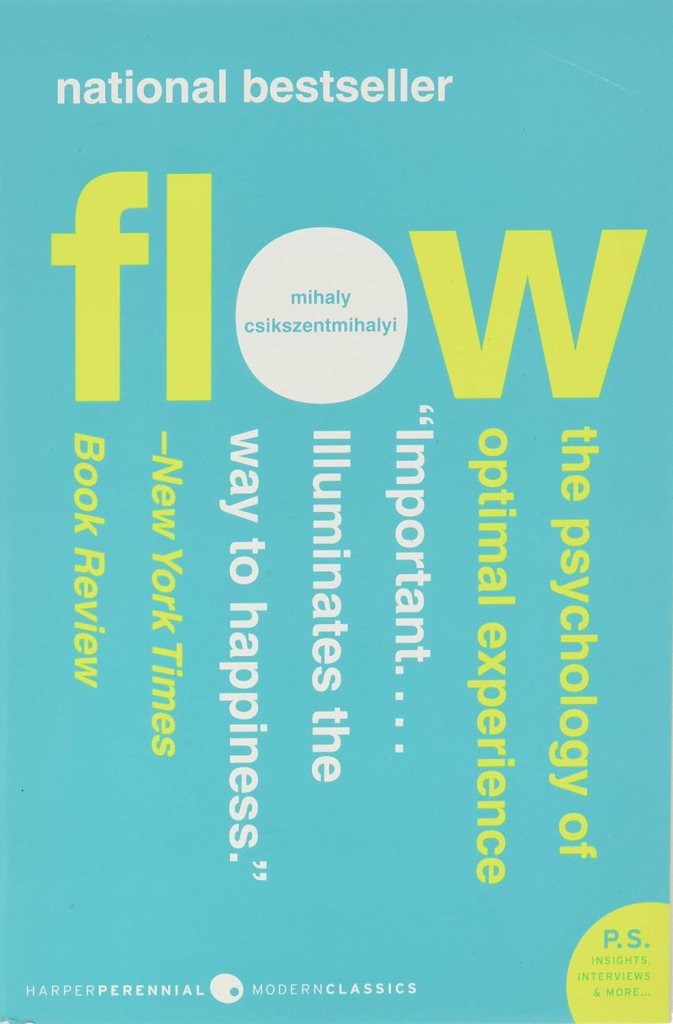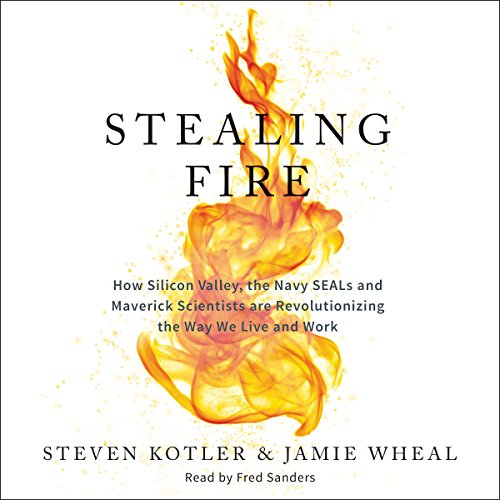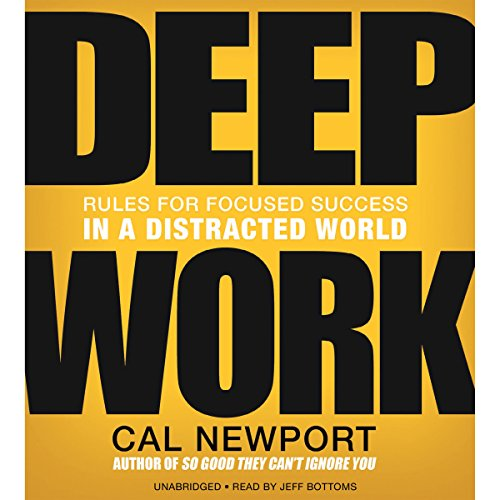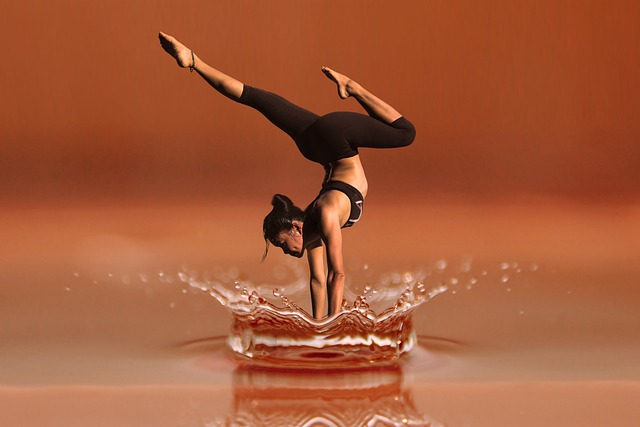The 5 Best Books on Flow State in 2023
Ever felt like time just flew by while you were engrossed in an activity? That’s the magic of the “flow state.”
Dive deep into the world of optimal experience and discover how to harness this optimal state to elevate your performance.
With the best books on flow state, you can unlock secrets to peak performance, creativity, and happiness.
Read on to discover the top books that will guide you on this transformative journey.
Dive into the realm of the “flow state” with our curated list of the best books for 2023. Unearth the secrets of peak performance, and let’s get flow states together!
What Are the Best Books on Flow State?
Before we delve into our top picks, let’s understand the significance of these books. They not only unravel the science behind the flow state but also offer actionable insights to achieve it in various aspects of everyday life.
1. Flow: The Psychology of Optimal Performance by Mihaly Csikszentmihalyi

Flow: The Psychology of Optimal Performance by Mihaly Csikszentmihalyi
Written by the psychologist who coined the term “flow,” this book is a foundational text on the subject. Csikszentmihalyi provides a comprehensive exploration of the concept-finding flow, backed by decades of research. He delves into the conditions that induce flow and offers insights into how individuals can find happiness through complete immersion in activities.
Pros:Cons:
Key Benefits
– Comprehensive understanding of flow
– Insights into achieving happiness through engagement
Practical applications in various fields
Pricing
– Available on major online bookstores, prices may vary.
Pros and Cons
– Pros: In-depth research, practical applications, easy to understand
– Cons: Some sections can be heavy on academic evidence
2. The Rise of Superman by Steven Kotler
The Rise of Superman by Steven Kotler
Why it’s one of the best: Kotler takes a unique approach by exploring flow in the context of extreme sports. Through captivating stories of athletes pushing the boundaries of human capability, the book delves into the science and psychology of the optimal experience of flow and how it can be harnessed for peak performance. It’s a testament to the transformative power of flow in real-world scenarios.
Pros:Cons:

Why it’s one of the best: Kotler takes a unique approach by exploring flow in the context of extreme sports. Through captivating stories of athletes pushing the boundaries of human capability, the book delves into the science and psychology of the optimal experience of flow and how it can be harnessed for peak performance. It’s a testament to the transformative power of flow in real-world scenarios.
Key Benefits
Exploration of flow in extreme sports
Real-life examples of peak performance
Science-backed insights
Pricing
Available at major online bookstores, prices may vary.
Pros and Cons
Pros: Engaging stories, actionable insights, research-based
Cons: Focuses mainly on extreme sports
3. The Art of Learning by Josh Waitzkin

The Art of Learning by Josh Waitzkin
Why it’s one of the best: This book offers a blend of autobiography and instructional content. Waitzkin, a chess and martial arts champion, shares his personal journey of mastering skills and achieving flow. His insights into the learning process and how to navigate challenges make it a valuable read for anyone looking to excel in their field.
Pros:Cons:
Why it’s one of the best: This book offers a blend of autobiography and instructional content. Waitzkin, a chess and martial arts champion, shares his personal journey of mastering skills and achieving flow. His insights into the learning process and how to navigate challenges make it a valuable read for anyone looking to excel in their field.
Key Benefits
Journey of a chess and martial arts champion
insights into mastering skills
Practical lessons on learning and growth
Pricing
Available at major online bookstores, prices may vary.
Pros and Cons
Pros: Engaging narrative, practical advice, broad applications
Cons: Autobiographical nature might not appeal to all
4. Stealing Fire: How Silicon Valley, the Navy SEALs, and Maverick Scientists Are Revolutionizing the Way We Live and Work by Steven Kotler and Jamie Wheal
Stealing Fire
Why it’s one of the best: “Stealing Fire” offers a groundbreaking exploration of altered states of consciousness and their role in driving innovation, performance, and creativity. By weaving together neuroscience, captivating stories, and insights from top performers across various domains, the book presents a compelling case for harnessing these states to revolutionize how we work and live.
Pros:Cons:

Why it’s one of the best: “Stealing Fire” offers a groundbreaking exploration of altered states of consciousness and their role in driving innovation, performance, and creativity. By weaving together neuroscience, captivating stories, and insights from top performers across various domains, the book presents a compelling case for harnessing these states to revolutionize how we work and live.
Key Benefits
Revolutionary Insights: The book delves into how top performers in various fields are tapping into altered states of consciousness to achieve peak performance.
Broad Spectrum: From Silicon Valley innovators to Navy SEALs, the book explores how different groups harness these states for breakthroughs.
Neuroscience Meets Practice: “Stealing Fire” combines cutting-edge neuroscience with real-world applications, offering a deep dive into the potential of the human mind.
Pricing
Available at major online bookstores, prices may vary. Typically priced between $20 and $40 for a hardcover edition,
Pros and Cons
Pros: comprehensive research, engaging narratives, broad applicability, and a fresh perspective on achieving peak states.
Cons: Some readers might find certain sections heavy on neuroscience. The book’s emphasis on altered states might be controversial or not resonate with everyone.
5.Deep Work: Rules for Focused Success in a Distracted World, by Cal Newport

Deep Work: Rules for Focused Success in a Distracted World, by Cal Newport
Why it’s one of the best: In an age of constant digital distractions, Newport’s “Deep Work” stands out for its emphasis on the profound benefits of focused, uninterrupted work. The book offers a compelling argument backed by research and practical strategies, making it a must-read for anyone seeking to enhance productivity and achieve mastery in their field.
Pros:Cons:
Why it’s one of the best: In an age of constant digital distractions, Newport’s “Deep Work” stands out for its emphasis on the profound benefits of focused, uninterrupted work. The book offers a compelling argument backed by research and practical strategies, making it a must-read for anyone seeking to enhance productivity and achieve mastery in their field.
Key Benefits
Focused Approach: Newport introduces the concept of “deep work” and its significance in today’s distracted world.
Practical Strategies: The book offers actionable strategies to cultivate a deep work ethic, enhancing productivity and creativity.
Relevance: Addresses the challenges of modern-day distractions and their impact on work quality and personal satisfaction.
Pricing
Available at major online bookstores, prices may vary. Typically priced between $15 and $30 for a hardcover edition,
Pros and Cons
Pros: Well-researched, actionable advice, relevant to modern challenges, and offering a fresh perspective on work ethics.
Cons: Some readers might find it challenging to implement all strategies in certain work environments. The book’s emphasis on solitude might not resonate with everyone.
6. Peak: Secrets from the New Science of Expertise, by Anders Ericsson and Robert Pool
Peak
Fill in your product description here. Add your product image to the right. If you are using an Amazon Affiliate image, use a ‘Custom HTML’ block instead of an image block and paste in your image code from Amazon. Add your product link to the button below.
Pros:Cons:

Why it’s one of the best: “Peak” challenges the conventional belief in innate talent and emphasizes the power of deliberate practice. Drawing on insight from Ericsson’s extensive research on expertise, the book provides a roadmap to achieving mastery in any domain. Its blend of scientific insights and real-world examples makes it a definitive guide to skill acquisition and expertise.
Key Benefits
Expertise Unveiled: Ericsson, a leading researcher on expertise, delves into what it takes to achieve peak performance in any field.
Deliberate Practice: The book introduces the concept of “deliberate practice” and its role in mastering skills.
Real-world Examples: Features stories of individuals who achieved expertise through dedicated practice and the right techniques.
Pricing
Available at major online bookstores, prices may vary. Typically priced between $18 and $35 for a hardcover edition,
Pros and Cons
Pros: in-depth research, practical insights, broad applicability across various domains, and challenging conventional beliefs about talent.
Cons: Some readers might find the emphasis on deliberate practice repetitive. The book is research-heavy, which might not appeal to those looking for a light read
What is the flow state?

Flow state, often termed “being in the zone,” is a psychological state of complete immersion and focus in an activity. The phrase “flow” refers to those times when you’re so focused on a task that everything else seems to fade away, according to psychologist Mihaly Csikszentmihalyi. Time might seem to fly by or even stand still, and you’re fully engaged in what you’re doing.
The characteristics of flow include:
Complete Concentration: A deep focus on the task at hand, with no room for distracting thoughts.
A Sense of Ecstasy: A feeling of elation or heightened joy while performing the activity.
Clarity: knowing what needs to be done and how well you’re doing.
Intrinsic Motivation: The activity itself becomes its own reward.
Loss of self-consciousness: A state where one is so immersed that they become one with the activity, losing self-awareness.
Transformation of Time: Time may seem to speed up or slow down.
How can Flow State benefit you?

Achieving flow control has numerous benefits, both immediate and long-term:
Enhanced Performance: When in flow, individuals often produce their best work, whether it’s in sports, the arts, or any other field.
Increased Creativity: Flow can lead to innovative ideas and solutions, as the mind is free from distractions.
Improved Learning: With heightened focus and engagement, learning becomes more effective and enjoyable.
Boosted Well-Being: Experiencing flow regularly can lead to increased happiness and satisfaction in life. It provides a sense of purpose and fulfillment.
Reduced Stress: Being in the flow can act as a form of meditation, reducing anxiety and stress.
Skill Development: As flow often occurs at the intersection of challenge and skill, it pushes individuals to improve and hone their abilities.
In essence, flow state is not just an idea about improving performance or productivity; it’s about enhancing the quality of life. By understanding and harnessing flow, individuals can lead more engaged, fulfilling, and purposeful lives.
Buyers Guide: How We Conducted Our Research
Pricing: compared prices across major online bookstores.
Features: Evaluated the depth, research, and practicality of each book.
Negatives: identified any gaps or overly academic sections.
Support or refund: checked availability, community discussions, and return policies
H2: Conclusion/Wrapping Up
The journey to understanding and achieving the flow state can be transformative. With the right books as your guide, you can unlock unparalleled levels of performance and discover true happiness within.
Frequently Asked Questions
Q: How often should one practice to achieve a flow state?
A: Achieving a flow state isn’t necessarily about the frequency of practice, but rather the quality and conditions of the practice. However, regularly engaging in activities that challenge you and match your skill level can increase the likelihood of entering flow. It’s essential to find a balance between the challenge of the task and your skill level. Too easy, and you’ll be bored; too hard, and you’ll be anxious. Finding that “sweet spot” and consistently engaging in such activities can help induce flow more often.
Q: Are there any exercises or techniques to induce flow?
A: Yes, there are several techniques to induce flow:
Clear Goals: Know what you want to achieve with the task at hand.
Immediate Feedback: This helps you adjust your actions and stay in the flow.
Challenge-Skill Balance: Ensure the task is neither too easy nor too hard for your skill level.
Eliminate distractions: create a dedicated workspace, use tools like the Pomodoro Technique, and ensure you have all the resources you need before starting.
Focus on the Process: Instead of being overly concerned about the outcome, immerse yourself in the process.
Practice mindfulness and meditation. These can help improve concentration and awareness, making it easier to enter flow.
Q: Can flow states be achieved in everyday tasks?
A: Absolutely! Flow isn’t reserved for grand tasks or creative endeavors. Everyday tasks like cooking, cleaning, gardening, or even walking can induce flow if you’re fully immersed in them. The key is to be present, find joy in the process, and align the task’s difficulty with your skill level.





